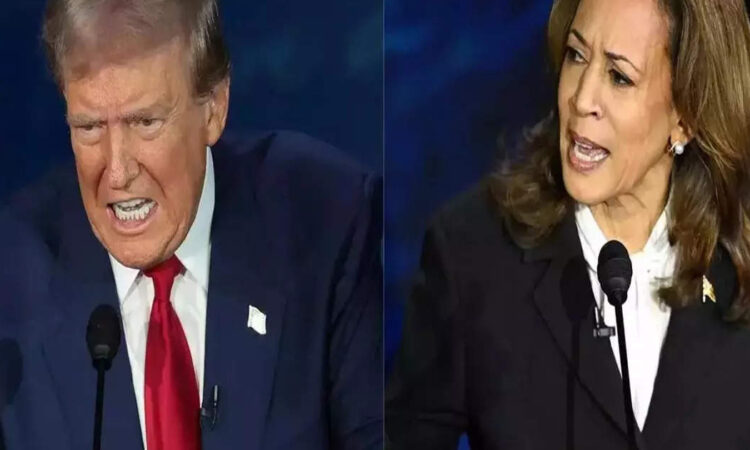us elections impact stock market: How US presidential elections affect the stock market, economy? Explained

Markets will closely watch control of the house and Senate too, apart from the presidency, to determine how likely it is that either party’s agenda is implemented. The price of gold has soared to record heights.
General elections affect stock markets and the uncertainty around their outcome typically increases market volatility before votes are cast. Markets also continue to adjust after an election takes place as the policy priorities of the newly installed government become apparent.
ALSO READ: JPMorgan Chase CEO Jamie Dimon warns World War III has already begun, mentions China, Russia
With the fiery Republican nominee and former president Donald Trump gearing to take on Vice-President Kamala Harris, the US presidential elections will have significant global and economic implications. As both candidates reveal their policies on tariffs, immigration and economic relations, markets and IT sectors are closely monitoring the potential impacts and are adjusting their strategies accordingly.
While Democrats are often viewed as the party who favour policies that redistribute wealth through taxation, Republicans have a reputation of favouring more passive policies with lower tax rates.
Stock markets performed better under Democrats: Research
According to Forbes, presidential elections “can shift the nation’s policies regarding foreign relations and domestic economic development,” and as such, “can cause significant volatility in the market as investors cope with uncertainty about the country’s direction”. If there is a clear margin of victory and a returning incumbency, it tends to reduce uncertainty and minimise the volatility observed in stock markets. Though it is difficult to successfully predict the accurate results of the elections, political analysts and reporters have made some notable forecasting errors. One such example is the 2016 US presidential election, when estimates put the likelihood of Hilary Clinton winning at between 71% and 99% (Kennedy et al, 2018).
If we look at a big chunk of the past century, the US economy and its stock markets have actually performed better under Democratic presidencies, on two key measures. According to a report published in The Conversation, research by Lubos Pastor and Pietro Veronesi from the University of Chicago examined the period between 1927 and 2015 and they found average growth in gross domestic product (GDP) was 4.86 per cent under Democratic presidents.
ALSO READ: Jim Rogers’ investment advice amid ‘extremely bad’ US recession prediction
Under Republican presidencies, it averaged 1.7 per cent. Over the same period, the US share market’s “equity risk premium” was also 10.9 per cent higher under Democratic presidents than Republicans. In the years from 1999 to 2015, it was even higher under democratic presidents – 17.4 per cent, the report said.
The research by Pastor and Veronesi also suggest when the economy is weak, voters may prefer the wealth re-distribution policies of Democrats, a theory supported by election of Bill Clinton, Barack Obama, and Joe Biden during economic downturns. A Democratic win in November is unlikely to cause a stock market boom, as it would continue current policies and coincide with a strong US economy.
“Historically, U.S. elections have caused short-term market volatility but had minimal long-term impact. Policy shifts between parties are typically minor, rarely affecting companies’ growth rates or long-term profitability. As long-term investors, we don’t alter investments based on speculated political outcomes or anticipated policy changes. While responding to change is important, speculating on binary outcomes is not a secure strategy, “Craig Maddock, Vice President, Senior Portfolio Manager & Head of the Multi-Asset Management Team told Scotia Funds.
ALSO READ: Is recession on the cards in US? World’s largest alternative asset management firm CEO says…
What happens if Trump wins?
Research from the Bank of Italy suggests that a Trump win might bring more volatility in the bond market, higher stock prices with lower volatility, and lower oil prices, according to Forbes.
Darrow Wealth Management notes that political gridlock tends to be the best outcome for markets. Additionally, the stock market often performs better before elections, with the S&P 500 up by 23% this year. However, returns might be weaker post-election.
Overall, the presidency has not been the primary driver of stock market returns, which tend to be positive over time unless there is a financial crisis.
